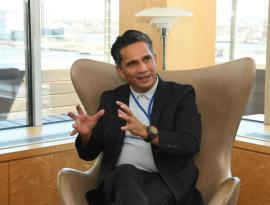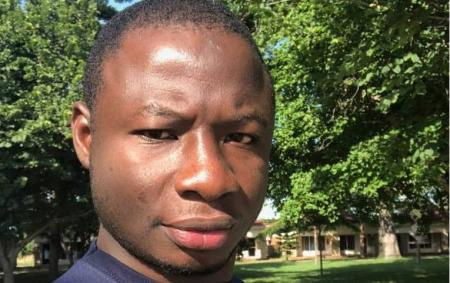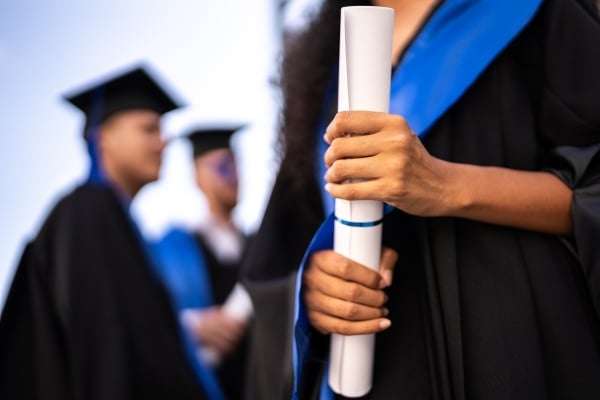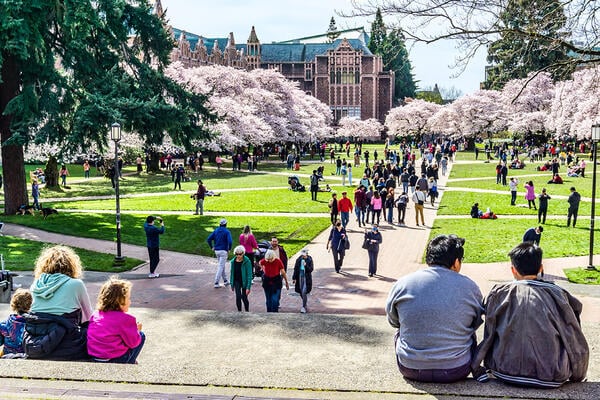A critique of the Ivy job market advantage (opinion)
In 2023, The New York Times ran an article titled, “Study of Elite College Admissions Data Suggests Being Very Rich Is Its Own Qualification.” The article relays the findings of Raj Chetty, David J. Deming and John N. Friedman, who found that one in six students at Ivy League colleges had parents in the top 1 percent of incomes, and that this disproportion is not attributable to wealthier students getting better grades or taking harder classes.
Chetty and his Ivy League colleagues found that wealthy students were admitted at higher rates, even after controlling for SAT scores, application rates and other factors—finding, for example, that “for applicants with the same SAT or ACT score, children from families in the top 1 percent were 34 percent more likely to be admitted than the average applicant, and those from the top 0.1 percent were more than twice as likely to get in.”
The findings won’t surprise anyone who has spent more than three seconds on an Ivy League campus. Outside of NoHo, you might never see as many Hunter boots, Sperry boat shoes and Canada Goose jackets. In his 2020 ethnography of an elite college campus (published by Harvard University Press), Anthony Abraham Jack, then an Ivy League professor, referred to such high-end style choices as “the uniform.”
Most Popular
One of the great paradoxes of the Ivy League is that its professors love to criticize privilege. Shamus Khan, who has held professorships at two Ivy League universities, even wrote a book called Privilege (published by Princeton University Press). His conclusions, written more than a decade before that New York Times article, are as relevant as ever. Though legacies “are provided special consideration by colleges, increasing their chances of admission, poorer students are afforded no such luxury.”
There’s something similar happening in the academic job market.
When you look at the hiring practices of Ivy League universities, being an Ivy League alumnus is its own qualification. Among the 12 newest fellows at the Harvard Society of Fellows, eight have Ivy League degrees. Among the 14 current fellows in Princeton’s Society of Fellows, nine list Ivy League degrees. At Yale University, more than half of the assistant professors in my field, English, have at least one Ivy League degree.
By way of comparison, there are more than 400 doctorate-granting institutions in the U.S. alone.
And where do you think Ivy League Ph.D. programs accept their students from? Of all the students pursuing a Ph.D. in the Department of Modern Culture and Media at Brown University who have included their bios on the department website, four out of 10 already have Ivy League degrees.
For all the talk about diversity, equity and inclusion inside the Ivy League, it looks like a landed aristocracy. Albeit, now it’s an aristocracy where professors and their students represent different racial, gender and sexual identities. But identities aren’t classes. And you don’t need a Ph.D. in economics to know that your parents’ class still predicts whether or not you’ll be admitted to the Ivy League.
Even at the lower-ranked institutions, Ivy League alumni dominate. Just look at the history department at Lake Forest College, a college that most Americans have probably never heard of. Of the six tenured and tenure-track faculty members, four have at least one Ivy League degree.
There are at least two explanations for this. First, academics—despite all their DEI talk—respect hierarchies. Yale respects Harvard. Harvard respects Columbia. Columbia respects Princeton. They also respect the handful of universities that aren’t quite Ivy, but are close enough—the Ivy Plus. That group includes Stanford, the Massachusetts Institute of Technology and the rest of the usual suspects. At less prestigious universities, there’s nothing better than touting the fact that your professors come from more prestigious universities, a point that isn’t lost on PR departments. As a Nature study recently revealed, “There are stark inequalities in the hiring process, with 80 percent of U.S. faculty trained at just 20 percent of institutions.”
Second, Ivy League alumni are better positioned for the academic job market. By way of example, I’m guaranteed at least two fellowship years (without teaching responsibilities) at Cornell, where I’m a Ph.D. student. When I’m not on fellowship, I only teach two courses per year. If I were at, say, the University of Illinois at Chicago, I would teach three courses per year. Instead of two years of fellowship, I would get one semester. All other things being equal: Who do you think has more time to lesson plan? Who do you think has more time to write? Who do you think will have better student evaluations and more publications?
Editors' Picks
Sociologists call it “accumulated advantage.” It’s a fancy way of saying privilege begets more privilege.
If the Ivy League was serious about diversity, equity and inclusion—those are the buzzwords in every other email I’ve received at Cornell and Harvard—its admissions committees would start by ending legacy admissions. Its hiring committees would start by giving less consideration to Ivy League alumni.
After all, we’re the ones with the fellowship years, the reduced teaching loads, the higher stipends and other forms of accumulated advantage. Statistically speaking, we’re also the ones with rich parents.
Of course, not all of us are rich. I grew up in a house where I had to split wood because gas and electric heat were too expensive. My parents didn’t go to college. I got my first job in middle school. But my background isn’t typical. It’s actually the kind of background that Ivy League PR departments love to publicize.
These departments are always eager to recreate the illusion that the Ivy League isn’t the bastion of inherited privilege that it—unquestionably—is.











